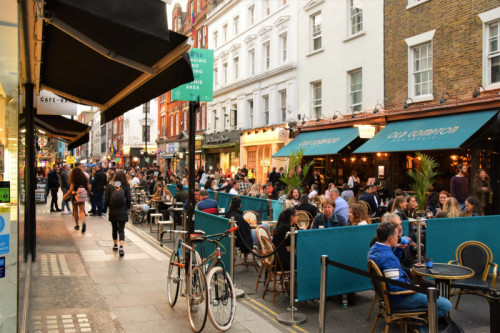
A recent study conducted by experts at The University of Manchester highlights a significant transformation in Britain’s social landscape. The number of bars and pubs has sharply declined, while restaurants have seen substantial growth over the past two decades. Published in the journal Applied Geography, the research examined over 1,100 neighbourhoods across Greater Manchester and Nottingham from 2002 to 2019.
The findings reveal that bar numbers decreased by approximately 35%, paralleling a similar increase in restaurant establishments. This trend reflects a broader pattern observed across the UK, where thousands of pubs have closed in recent years due to rising costs, shifting consumer habits, and the impact of the Covid-19 pandemic on the hospitality sector.
Changing Social Preferences
Lead author Jonathan Wood stated, “Our findings show a clear generational move away from alcohol-centred venues.” The research indicates that younger generations are increasingly opting for social experiences centered around food rather than alcohol. As a result, many neighbourhoods in both Manchester and Nottingham have seen the disappearance of bars and pubs that once thrived on high streets.
In 2002, approximately 43% of neighbourhoods in Manchester and 47% in Nottingham had no bars. By 2019, this number of “bar deserts” had increased nearly twenty-fold. Conversely, the likelihood of a neighbourhood lacking restaurants decreased by at least five-fold during the same period. This shift demonstrates a notable change in leisure preferences, with dining out emerging as a more inclusive and family-friendly activity.
The Impact of Geography on Venue Distribution
The research also emphasizes the geographic aspects influencing this trend. Venues are increasingly clustering in central, well-connected areas, particularly near retail hubs and accessible public transport. For instance, Manchester’s nightlife has centralized around popular districts like the Northern Quarter and Deansgate, while local bars in suburban neighbourhoods struggle to maintain patronage.
In contrast, restaurants have successfully expanded into suburban areas, providing residents with more dining options. This reflects a shift in how people prefer to spend their leisure time, aligning with the growing trend of socializing around meals.
The decline in pubs and bars has raised concerns among community advocates who view these spaces as essential for social interaction. The findings underline how closures are reshaping neighbourhood dynamics, particularly in economically deprived areas where pubs historically served as affordable social venues. While the growth of restaurants may stimulate local economies, it also signals a need for urban planners and policymakers to adapt to evolving consumer behaviors and preferences.
As Britain’s social life continues to evolve, the implications of these trends are profound, influencing not only individual neighbourhoods but also the broader fabric of society.






